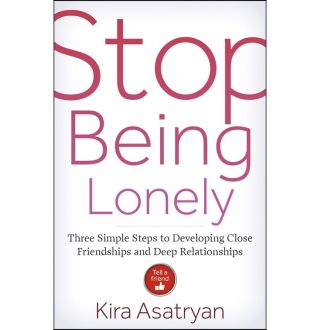Relationships
The 7 Habits of Socially Connected People
For one thing, they might not be the life of the party.
Posted September 29, 2015

Some people are naturally gregarious and find themselves socially connected seemingly with no effort. But for most of us, feeling integrated into a social scene takes some work.
Luckily, there are some predictable patterns to social success: Do certain things, and more people should be drawn to you. Here are the 7 skills that socially successful people possess:
1. They focus on quality over quantity.
People who feel socially connected may have a thousand Facebook friends and even more Twitter and Instagram followers, but they know deep down that this is not the heart of their social circle. They acknowledge that most of their social-media "friends" are acquaintances at best. Having many acquaintances is not a bad thing. Still, those who succeed socially understand that acquaintances need to eventually become close friends in order to feel truly tied to their friend group. These individuals don’t settle for quantity, but always aim for quality.
2. They prioritize face-to-face interactions.
Maintaining relationships requires effort. Most socially connected people prioritize seeing others in person. While in-person time can seem less efficient than online or phone interactions, there’s a value to in-person communication that socially successful people understand. It’s how you start seeing people as just that—people.
3. They share.
To feel socially connected, it’s vital to feel seen by those around you. But to feel seen, you have to let others get to know you. Socially connected people understand this and are willing to share at least bits and pieces of personal information with others. This doesn’t mean oversharing with strangers; it simply means making yourself a little vulnerable to those with whom you want to feel close.
4. They listen.
Introverts may have a hard time feeling as socially connected as extroverts. But the most extroverted person in the room may not be the most socially connected. They may receive attention, but if an extrovert does not learn a bit about those around them—by quietly listening to them—those other people will hardly feel closer to them. Listening to others makes people want to be around you, and wanting to be around each other is the essence of feeling connected.
5. They ask questions.
Socially connected people understand that all social interaction is fundamentally about demonstrating interest in one another. If you don’t act like you’re interested in those around you, you’ll come across as aloof, cold, or even rude. The easiest way—by far—to demonstrate interest in others is to ask questions. The most socially successful people ask not just factual questions (“What do you do for work?”) but questions that are a little more personal (“How do you like what you do?”). These two types of questions, used in conjunction, accelerate feelings of connectedness.
6. They see past differences.
Inevitably, you will notice differences between you and any friend, whether in terms of politics, religion, or lifestyle. Socially connected people realize that nobody will be, act, and look exactly like them, so they make an effort to not let differences stand in the way of closeness. They understand that we’re all human, and can all naturally relate to one another.
7. They don't worry about rejection.
It is natural to fear rejection when entering a new social group or meeting a new person you really like. While socially connected people likely feel this fear, they don’t worry about it. In other words, they don’t dwell on the fear and allow it to turn into an unproductive rumination on what could go wrong. Instead, they identify the people they want to be close to and march bravely into those relationships despite any fears that may arise.

Kira Asatryan is a relationship coach and the author of Stop Being Lonely: Three Simple Steps to Developing Close Friendships and Deep Relationships.
For more relationship tips, visit www.kiraasatryan.com and follow her on Twitter @KiraAsatryan.


